Sofia Yfantidou
Mind the XAI Gap: A Human-Centered LLM Framework for Democratizing Explainable AI
Jun 13, 2025Abstract:Artificial Intelligence (AI) is rapidly embedded in critical decision-making systems, however their foundational ``black-box'' models require eXplainable AI (XAI) solutions to enhance transparency, which are mostly oriented to experts, making no sense to non-experts. Alarming evidence about AI's unprecedented human values risks brings forward the imperative need for transparent human-centered XAI solutions. In this work, we introduce a domain-, model-, explanation-agnostic, generalizable and reproducible framework that ensures both transparency and human-centered explanations tailored to the needs of both experts and non-experts. The framework leverages Large Language Models (LLMs) and employs in-context learning to convey domain- and explainability-relevant contextual knowledge into LLMs. Through its structured prompt and system setting, our framework encapsulates in one response explanations understandable by non-experts and technical information to experts, all grounded in domain and explainability principles. To demonstrate the effectiveness of our framework, we establish a ground-truth contextual ``thesaurus'' through a rigorous benchmarking with over 40 data, model, and XAI combinations for an explainable clustering analysis of a well-being scenario. Through a comprehensive quality and human-friendliness evaluation of our framework's explanations, we prove high content quality through strong correlations with ground-truth explanations (Spearman rank correlation=0.92) and improved interpretability and human-friendliness to non-experts through a user study (N=56). Our overall evaluation confirms trust in LLMs as HCXAI enablers, as our framework bridges the above Gaps by delivering (i) high-quality technical explanations aligned with foundational XAI methods and (ii) clear, efficient, and interpretable human-centered explanations for non-experts.
AgoraSpeech: A multi-annotated comprehensive dataset of political discourse through the lens of humans and AI
Jan 09, 2025Abstract:Political discourse datasets are important for gaining political insights, analyzing communication strategies or social science phenomena. Although numerous political discourse corpora exist, comprehensive, high-quality, annotated datasets are scarce. This is largely due to the substantial manual effort, multidisciplinarity, and expertise required for the nuanced annotation of rhetorical strategies and ideological contexts. In this paper, we present AgoraSpeech, a meticulously curated, high-quality dataset of 171 political speeches from six parties during the Greek national elections in 2023. The dataset includes annotations (per paragraph) for six natural language processing (NLP) tasks: text classification, topic identification, sentiment analysis, named entity recognition, polarization and populism detection. A two-step annotation was employed, starting with ChatGPT-generated annotations and followed by exhaustive human-in-the-loop validation. The dataset was initially used in a case study to provide insights during the pre-election period. However, it has general applicability by serving as a rich source of information for political and social scientists, journalists, or data scientists, while it can be used for benchmarking and fine-tuning NLP and large language models (LLMs).
Evaluating Fairness in Self-supervised and Supervised Models for Sequential Data
Jan 03, 2024Abstract:Self-supervised learning (SSL) has become the de facto training paradigm of large models where pre-training is followed by supervised fine-tuning using domain-specific data and labels. Hypothesizing that SSL models would learn more generic, hence less biased, representations, this study explores the impact of pre-training and fine-tuning strategies on fairness (i.e., performing equally on different demographic breakdowns). Motivated by human-centric applications on real-world timeseries data, we interpret inductive biases on the model, layer, and metric levels by systematically comparing SSL models to their supervised counterparts. Our findings demonstrate that SSL has the capacity to achieve performance on par with supervised methods while significantly enhancing fairness--exhibiting up to a 27% increase in fairness with a mere 1% loss in performance through self-supervision. Ultimately, this work underscores SSL's potential in human-centric computing, particularly high-stakes, data-scarce application domains like healthcare.
FairComp: Workshop on Fairness and Robustness in Machine Learning for Ubiquitous Computing
Sep 22, 2023Abstract:How can we ensure that Ubiquitous Computing (UbiComp) research outcomes are both ethical and fair? While fairness in machine learning (ML) has gained traction in recent years, fairness in UbiComp remains unexplored. This workshop aims to discuss fairness in UbiComp research and its social, technical, and legal implications. From a social perspective, we will examine the relationship between fairness and UbiComp research and identify pathways to ensure that ubiquitous technologies do not cause harm or infringe on individual rights. From a technical perspective, we will initiate a discussion on data practices to develop bias mitigation approaches tailored to UbiComp research. From a legal perspective, we will examine how new policies shape our community's work and future research. We aim to foster a vibrant community centered around the topic of responsible UbiComp, while also charting a clear path for future research endeavours in this field.
Beyond Accuracy: A Critical Review of Fairness in Machine Learning for Mobile and Wearable Computing
Mar 27, 2023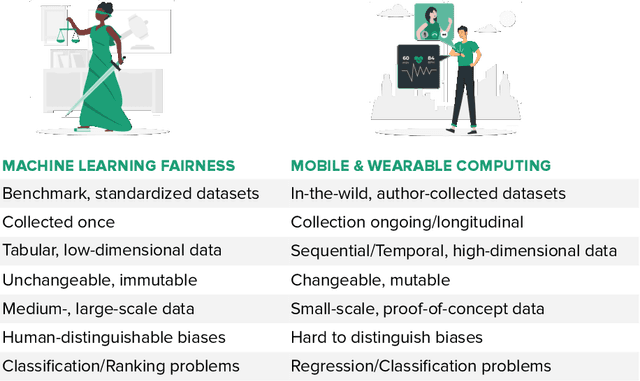
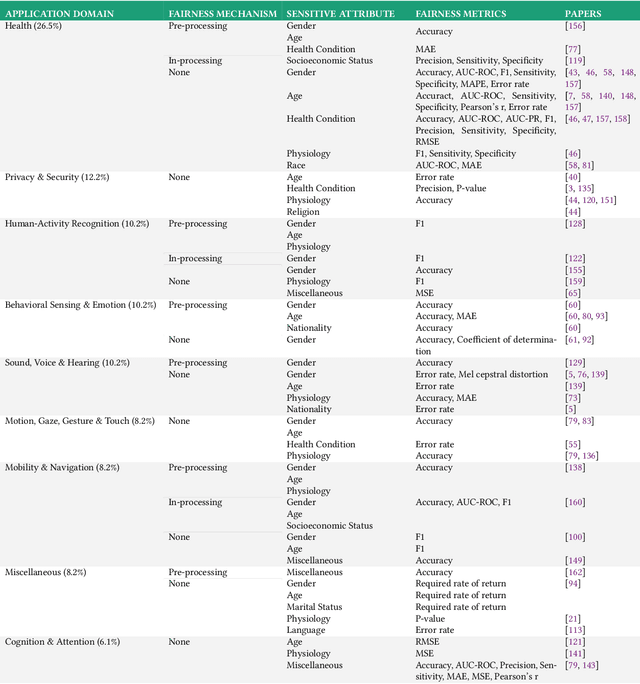


Abstract:The field of mobile, wearable, and ubiquitous computing (UbiComp) is undergoing a revolutionary integration of machine learning. Devices can now diagnose diseases, predict heart irregularities, and unlock the full potential of human cognition. However, the underlying algorithms are not immune to biases with respect to sensitive attributes (e.g., gender, race), leading to discriminatory outcomes. The research communities of HCI and AI-Ethics have recently started to explore ways of reporting information about datasets to surface and, eventually, counter those biases. The goal of this work is to explore the extent to which the UbiComp community has adopted such ways of reporting and highlight potential shortcomings. Through a systematic review of papers published in the Proceedings of the ACM Interactive, Mobile, Wearable and Ubiquitous Technologies (IMWUT) journal over the past 5 years (2018-2022), we found that progress on algorithmic fairness within the UbiComp community lags behind. Our findings show that only a small portion (5%) of published papers adheres to modern fairness reporting, while the overwhelming majority thereof focuses on accuracy or error metrics. In light of these findings, our work provides practical guidelines for the design and development of ubiquitous technologies that not only strive for accuracy but also for fairness.
Uncovering Bias in Personal Informatics
Mar 27, 2023Abstract:Personal informatics (PI) systems, powered by smartphones and wearables, enable people to lead healthier lifestyles by providing meaningful and actionable insights that break down barriers between users and their health information. Today, such systems are used by billions of users for monitoring not only physical activity and sleep but also vital signs and women's and heart health, among others. %Despite their widespread usage, the processing of particularly sensitive personal data, and their proximity to domains known to be susceptible to bias, such as healthcare, bias in PI has not been investigated systematically. Despite their widespread usage, the processing of sensitive PI data may suffer from biases, which may entail practical and ethical implications. In this work, we present the first comprehensive empirical and analytical study of bias in PI systems, including biases in raw data and in the entire machine learning life cycle. We use the most detailed framework to date for exploring the different sources of bias and find that biases exist both in the data generation and the model learning and implementation streams. According to our results, the most affected minority groups are users with health issues, such as diabetes, joint issues, and hypertension, and female users, whose data biases are propagated or even amplified by learning models, while intersectional biases can also be observed.
UBIWEAR: An end-to-end, data-driven framework for intelligent physical activity prediction to empower mHealth interventions
Jan 03, 2023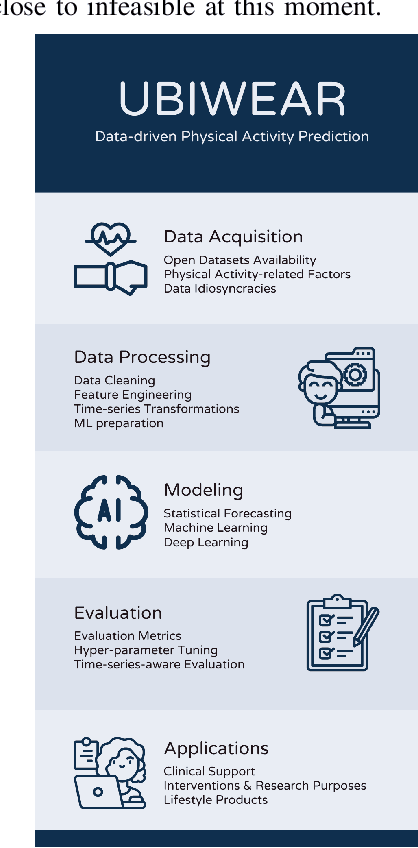
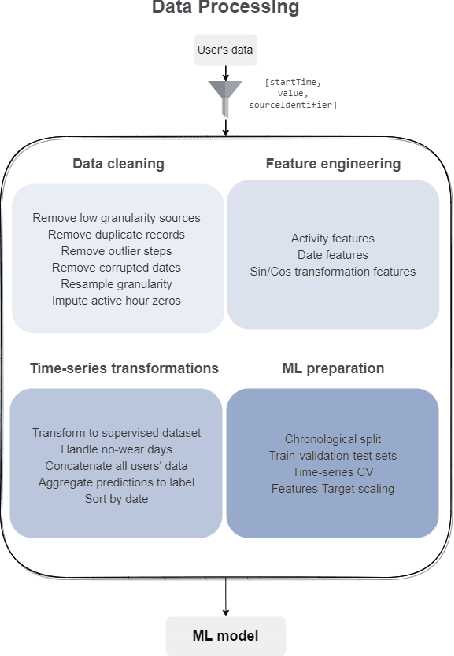
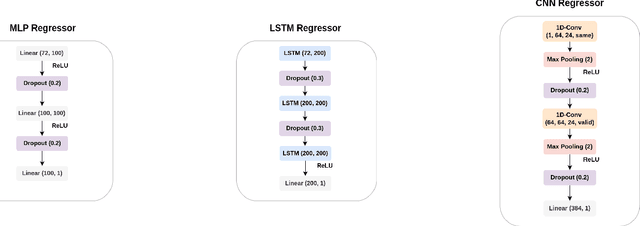
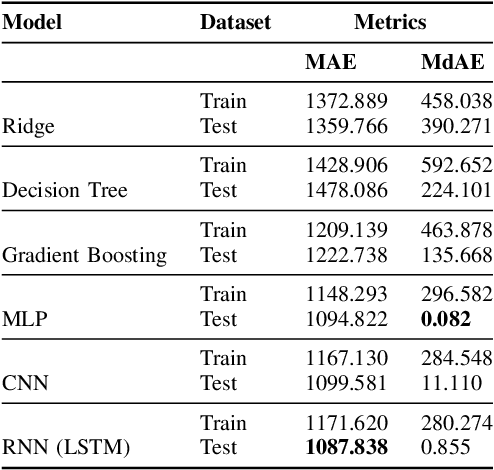
Abstract:It is indisputable that physical activity is vital for an individual's health and wellness. However, a global prevalence of physical inactivity has induced significant personal and socioeconomic implications. In recent years, a significant amount of work has showcased the capabilities of self-tracking technology to create positive health behavior change. This work is motivated by the potential of personalized and adaptive goal-setting techniques in encouraging physical activity via self-tracking. To this end, we propose UBIWEAR, an end-to-end framework for intelligent physical activity prediction, with the ultimate goal to empower data-driven goal-setting interventions. To achieve this, we experiment with numerous machine learning and deep learning paradigms as a robust benchmark for physical activity prediction tasks. To train our models, we utilize, "MyHeart Counts", an open, large-scale dataset collected in-the-wild from thousands of users. We also propose a prescriptive framework for self-tracking aggregated data preprocessing, to facilitate data wrangling of real-world, noisy data. Our best model achieves a MAE of 1087 steps, 65% lower than the state of the art in terms of absolute error, proving the feasibility of the physical activity prediction task, and paving the way for future research.
 Add to Chrome
Add to Chrome Add to Firefox
Add to Firefox Add to Edge
Add to Edge